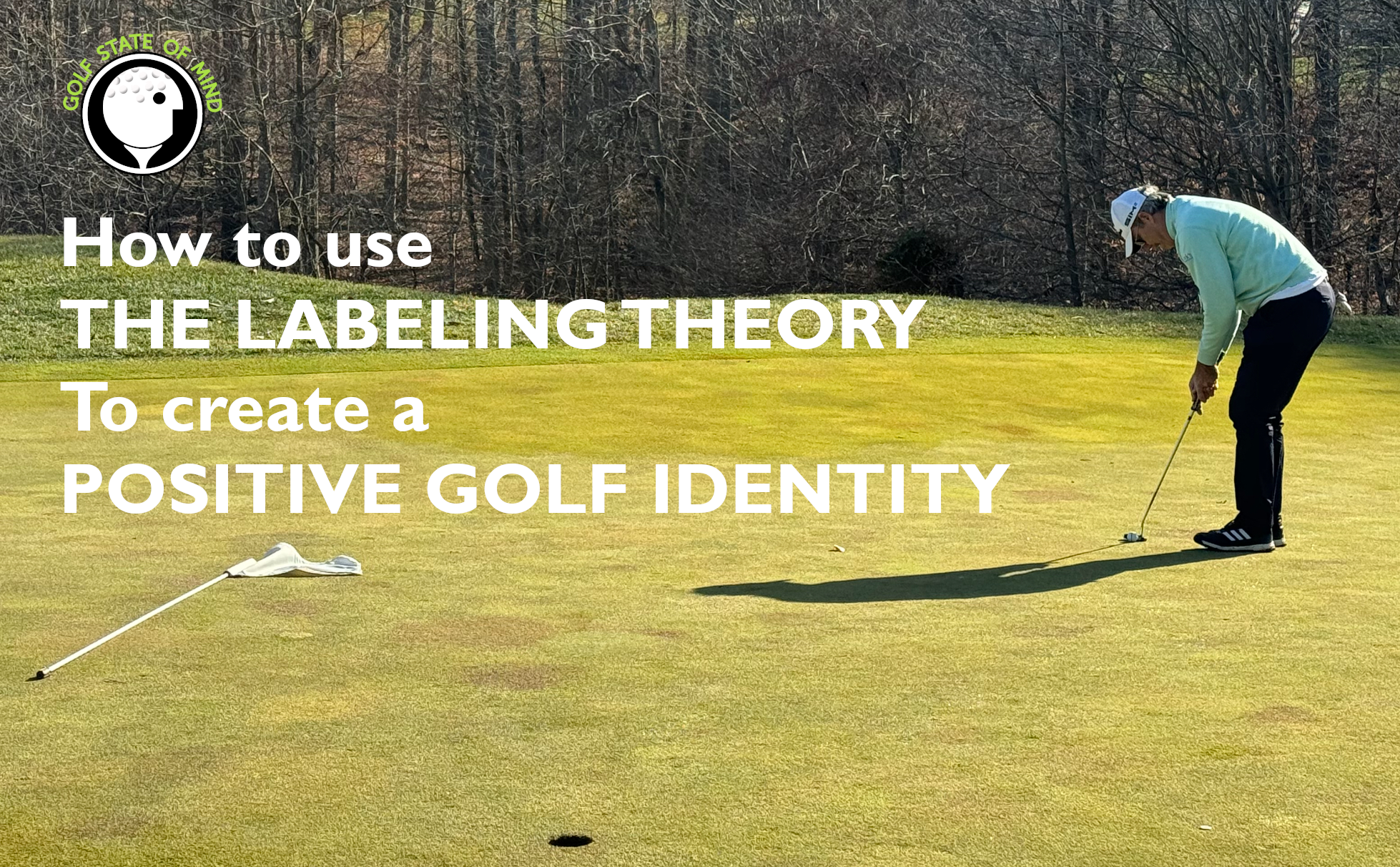
The Power of Labels: How To Create A Positive Golf Identity
In this article I’m going to show you how to use the Labeling Theory in psychology to create a positive golf identity and elevate your performance.
The Labeling Theory, introduced by social psychologist Howard Becker (1963) suggests people tend to conform to labels (roles) assigned to them by other people or themselves. Becker’s theory was based on deviant behaviors, suggesting that people labeled as “deviant” by society are increasingly likely to partake in delinquent behaviors compared to those who haven’t.
Although this theory was applied to criminology, the biggest take away here is that labels can create a self-identity that shapes our behaviors.
So…How can we apply the theory of labels to help us with our golf games?
Negative Labels
Golfers may unintentionally create negative labels about their game such as:
- “I can’t make a putt.”
- “I miss it right every time on this hole.”
- “I can’t hit it straight.”
- “I suck at chipping.”
- “I can’t close a round.”
Negative self-talk in golf is quite common, especially when we are not playing to our abilities. However, this type of self-talk establishes a negative self-identity for our subconscious to fulfill.
Whether it is intentional or unintentional, these labels can create a self-fulfilling prophecy.
For instance, if you’ve developed the belief that you “miss it right every time on this hole”…. And this is the only thing you think about … You may start to tense up or become increasingly worried about the outcome of the hole, leading to another miss hit to the right.
This may lead to worsened self-belief as you now have evidence for the specific label you’ve developed for yourself. The more we repeat these labels, the more likely it will affect our self-belief, our behaviors and outcome on the golf course.
Breaking Up with Negative Labels
So, how do we break free from these negative labels?
- Exercise Mindfulness in Our Words:
- Increased awareness can help players control negative self-talk.
- Being more mindful can help put a halt to those self-deprecating jokes.
- Acknowledge your Mistakes and Weaknesses, but Be Objective:
- Instead of saying things such as “I can’t make a putt”, be objective… you can make a putt, you simply just missed this one.
- Reframe Negative Self-Belief:
- In order to counteract negative self-beliefs, we have to form positive ones about ourselves.
- It’s okay… you are allowed to give yourself a compliment when you do well!
Positive Labels
If negative labels can create negative outcomes, then the same applies to positive labels. The self-fulfilling prophecy can work both ways.
Developing positive self-identities can provide a positive frame for your subconscious to fulfill.
Examples of positive labels you can develop:
- “I am a winner.”
- “I am the best chipper in the field.”
- “I hit it straight.”
- “I can make this putt.”
Create positive affirmations about yourself. Find traits, skills, and qualities that you possess (you need to believe your affirmations) that are positive, label yourself as such and watch the magic unfold!
Developing a Positive Golf Identity Statement
We challenge you to develop a statement about yourself as THE player you want to become.
Take a moment and think about all the qualities you believe the IDEAL player has.
List these qualities and develop a golf identity statement about yourself incorporating the traits of your IDEAL player.
E,g.,
- My ideal player is confident —-> I am a confident player.
- My ideal player drives the ball well —> I am a good driver of the ball.
- My ideal player is non-reactive and calm —> I am non-reactive and calm on the course, etc.
Developing a positive golf identity statement with all the traits you want to possess as a player, creates a framework for your subconscious, leading to better self-image and outcome on the golf course. Research has shown the effectiveness of positive affirmations of self-perception and behaviors (Cassio et. al., 2015).
Self-talk is a truly powerful tool, if used correctly.
The Power of Labels
In his first year on Tour, Brooks Koepka Labels Himself a Winner. His golf identity was “I am a big tournament player”.
Interviewer : “Let’s turn the clock, in 5 or 10 years, where do you see yourself?”
Brooks Koepka : “A Winner. On the PGA Tour. With a couple of Majors.”
2017 – 2023 – Brooks Koepka Becomes a Winner of 5 Major Championships and 19 professional wins.
Is this a clear-cut example of the power of labels or pure coincidence?
Give it a try and let us know!


